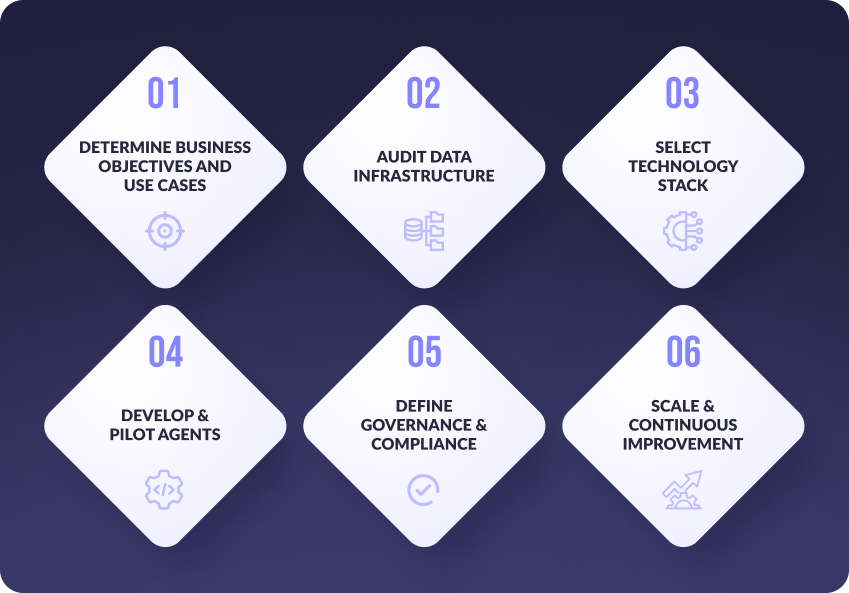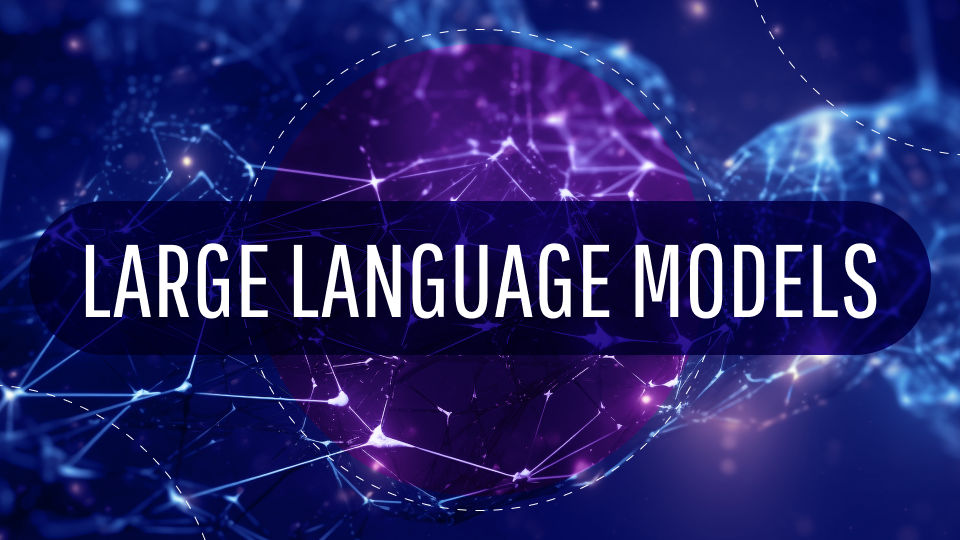AI agents transform the finance and banking sectors by automating repetitive tasks, analyzing financial data, and helping teams with strategic decisions. Today, AI agents go beyond automation and can enhance finance teams' impact. This way, CFOs and finance professionals can focus on long-term strategy instead of routine tasks.
AI agents integrate with ERP systems, simplify financial operations, reduce errors, and provide real-time insights.
Key takeaways
- AI generates real-time insights that support better decisions.
- In 2026, finance teams demand instant reconciliation, real-time reporting, and strict compliance.
- Agents cut costs, enhance audits, and improve cash flow transparency.
- Finance teams increasingly use ERP and Microsoft 365 to integrate AI agents into workflows.
- Falling behind leads to inefficiency, compliance risk, and lost benefits.
What are AI agents in finance?
AI agents are software systems that perform financial work independently or alongside people. They analyze financial data, generate reports, identify suspicious activities, and communicate with users through conversational interfaces.
Traditional automation runs on fixed scripts. AI agents learn patterns in financial data and adapt their actions. This is useful for managing expensesracking cash flow, and handling day-to-day financial operations, where conditions change frequently.
Finance agents usually have these features:
Conversational and task-driven: They can communicate in natural language with financial experts through conversational applications.
ERP and legacy systems integration: They easily connect with payable and receivable accounts, reporting systems, and data warehouses.
Real-time outputs: Agents can generate dashboards, summaries, and insights to support fast decisions.
AI agents combine automation with human oversight to boost efficiency and ensure compliance.
Why finance teams need AI agents in 2026
Financial roles are becoming complex. Traditional manual methods are insufficient amid big data workloads and rising demands. Here are some reasons why finance teams need AI agents now:
Working with complex financial data: AI systems process big volumes of organized and unstructured data and translate it into useful summaries. They identify suspicious patterns in the cash flow, detect unusual payment histories, and help teams quickly spot emerging risks.
Reducing errors and minimizing manual verification: Humans must still verify high-risk work, while AI handles calculations and initial records matching. That reduces errors and allows employees to focus on other, more significant tasks.
Enhancing processes immediately: AI tracks payables and receivables, generates audit records, and supports cost management in the short term.
Leadership perspective: As repetitive tasks are transferred to AI, CFOs and finance teams can now focus on strategic priorities. For example, they can identify revenue streams, improve forecasts, and test alternative scenarios. This makes finance a growth driver rather than a traditional operational function.

More insights
Amazon Bedrock AgentCore: Your guide to enterprise-scale AI automation
See why enterprises choose AgentCore for production-grade AI automation.
Read moreUse cases of AI agents in finance and banking
AI agents are becoming essential for banking and corporate finance, powering daily tasks, analytics, and long-term strategies with new efficiency and insights.
1. Accounts payable & receivable
Reconciliation agent: AI agents match invoices, purchase orders, and payments. They flag discrepancies for review, reducing errors and accelerating the month-end close.
Cash flow management: Agents track cash positions, helping teams predict requirements and optimize working capital.
Cost control: Automating expense checks and approvals helps companies adhere to policies and minimize administrative work.
Revenue recognition: AI agents monitor invoices and due dates to ensure proper revenue recognition and reduce risks.
2. Audit & compliance
Audit trails: Audits are usually manual; AI documents every automated action, making it easy to track what was done.
Regulatory compliance: Agents detect transactions that may violate financial regulations or company policies.
Responsible AI: With human checks, companies ensure that AI results are accurate and compliant.
Risk reduction: AI identifies unusual or fraudulent transactions on payables, cash flow, and other operations before they happen.
Data boundaries: AI can only access authorized data subsets and never trains on sensitive data without consent.
3. Financial data insights
Real-time reporting: AI gathers data from many sources and creates dashboards for CFOs and finance leaders.
Anomaly detection: Agents identify anomalies that break predicted patterns, utilizing LLMs and GenAI, which indicate errors or fraud.
Scenario modelling: Agents calculate financial outcomes simulations under varying assumptions and support the strategic decision-making process.
Improved decision-making: AI agents allow finance professionals to focus on value-added work instead of manual data collection.
4. Conversational agents & virtual assistants
Contextual support: AI answers questions about invoices, budgets, and financial reports in natural language.
Excel integration: Microsoft 365 Excel suggests formulas, automates calculations, and simplifies data handling.
Staff efficiency: Agents replace standard chatbots; they learn context and provide actionable responses rather than raw data.
Customer and employee experience: Internal teams and external partners receive faster and more precise responses.
How to create finance AI agents?
The successful implementation of AI agents requires proper planning, system integration, and governance. The following list has the most important steps, which are worth visualizing on the part of a designer:
Determine business objectives and use cases: Identify which financial processes (e.g., reconciliation, accounts payable) are most promising for automation in terms of ROI. Set specific and quantifiable goals (e.g., decrease month-end closing time by 30%).
Audit data infrastructure: Evaluate the current ERP systems, data warehouses, and the financial data quality. Make the necessary data (ledgers, invoices, and reporting) available to agents in a secure, easy way.
Select technology stack: Select the relevant AI platform (such as Vertex AI) and LLM models. Ensure that the tools facilitate the necessary integration (ERP, Microsoft 365, legacy systems).
Develop & pilot agents: Create an agent that can perform one distinct task (e.g, a payment reconciliation agent). Adopt a Human-in-the-Loop architecture: the agents should first be run under the human's careful eye, with the most risky decisions checked manually.
Define governance & compliance: Create an AI usage policy in compliance with financial regulations and audit standards. Be transparent, through agents making detailed, traceable, and auditable records of their actions.
Scale & continuous improvement: Expand successful pilot projects. Implement continuous learning mechanisms that enable agents to learn new rules, adapt to market changes, and refine internal processes.

How are AI agents reshaping finance functions?
AI agents transform financial functions by moving beyond routine tasks to support decision-making. But actual numbers and examples demonstrate that such changes are already upon us.
In a KPMG survey, 71% of corporations today are applying AI to their financial functions, and more than 40% are doing so either moderately or on a large scale.
After a generative-agent model named FinRobot (of ERP) was developed, they reduced processing time by up to 40% and errors by 94% in internal experiments.
JPMorgan applied AI to enhance clients' reactions to market turmoil and saved the company an estimated $1.5 billion in operational costs and fraud through tools such as Coach AI.
Below is a table of changes that AI agents introduce, in the form of benefits of finance functions:
Function shift | Benefits |
From repetitive tasks to strategic focus | Staff freed to work on forecasting, growth, not admin |
Augmentation over replacement | Better decisions with human + AI oversight |
Integration across departments | Unified workflows across payables, treasury, and compliance |
Customer experience transformation | Faster responses, real-time insight for stakeholders |
Support for critical processes | Reliable handling of revenue, cash flow, and anomalies |
Driving innovation | Teams focus on planning, predictive models, and optimization |
How to build finance AI agents?
Implementing AI agents successfully requires thorough planning, system integration, and governance.
Integration with ERP and financial data structures: Agents must easily connect with systems like Oracle or Microsoft Dynamics to access real-time financial data.
Human-in-the-loop design: Critical for responsible AI, human oversight ensures compliance, reviews exceptions, and manages high-risk financial decisions.
Using AI platforms like Vertex AI: Allows organizations to develop customizable, scalable AI agents integrated with existing workflows.
Compliance and transparency: AI agents should produce traceable, auditable, and regulation-aligned outputs.
Continuous learning and improvement: To stay relevant and accurate, agents should continuously learn and adapt to changing regulations, instruments, and processes.
Governance and risk management: Establish defined policies for deployment, oversight, and escalation to mitigate risks associated with AI in finance.
By following these steps, organizations can ensure that AI agents are both practical and compliant, supporting critical business processes and generating insights.
Real-world use cases of AI agents in finance & banking
According to McKinsey, generative AI would generate an extra $340 billion per year. At the same time, another company report showed that 13% of finance teams have already implemented generative agents, and 75% believe that agentic AI will become a standard practice by 2028.
This is motivated by obvious business reasons: reducing costs, increasing operational speed, and improving accuracy. The first adopters have already realized tangible benefits, including banks, fintechs, and corporate finance teams:
Company | How AI is used | Impact |
Finnt (Google for Startups AI Accelerator) | AI automation for corporate finance workflows | Reduced 90% in accounting time, boosted accuracy, and gained deeper financial insights |
AI for call center optimization | Significant time savings, faster support, improved client satisfaction | |
Specialized AI models for investment strategy | Streamlined decision-making, optimized portfolio management | |
AI-powered idea generation for sales teams | ↑ conversion rates, stronger sales performance |
Conclusion
AI agents are redefining finance functions. They reconcile accounts, pay bills, and track their cash flow. AI also provides swift data, allowing you to focus on strategy. Linking agents to ERP, Microsoft 365, and current financial information improves your efficiency, accuracy, and compliance.
Companies that adopt AI-driven finance agents have an edge. They enable simpler operational processes, allowing your team to focus on high-value strategic projects.
Our experts help companies develop intelligent, AI-driven finance solutions. We employ tailored operational methods for each business, along with effective functioning policies. Book a call with Geniusee to discuss your case and how AI-powered agents can simplify your finance workflows and boost performance.





















